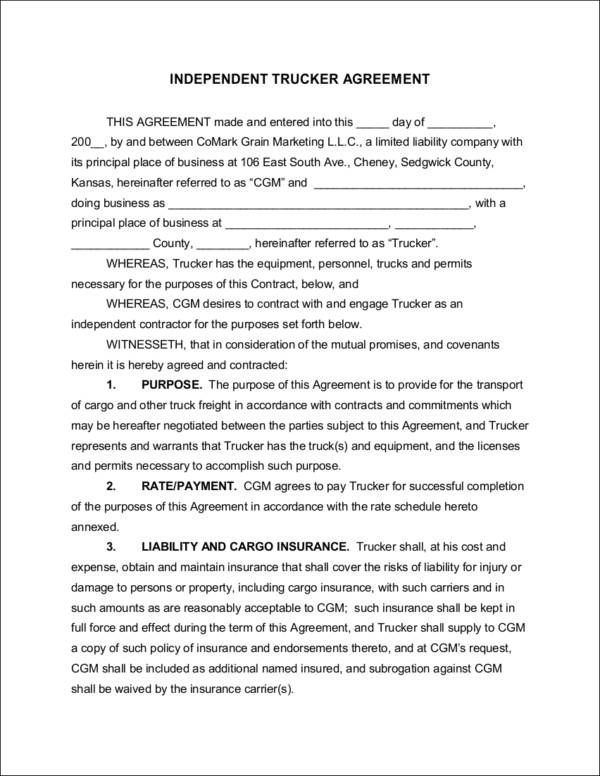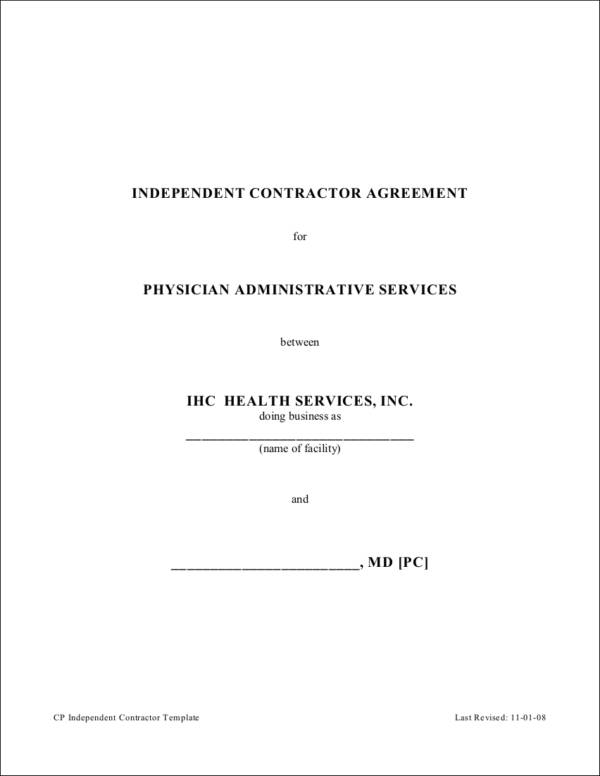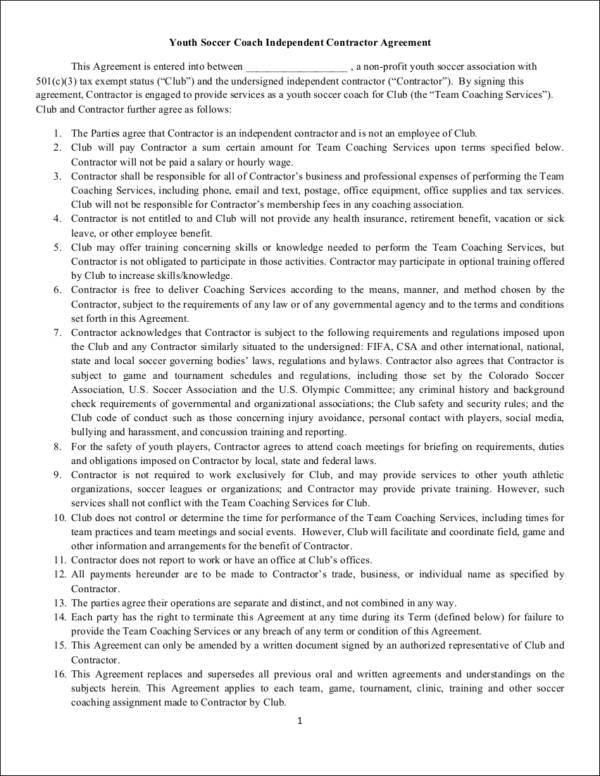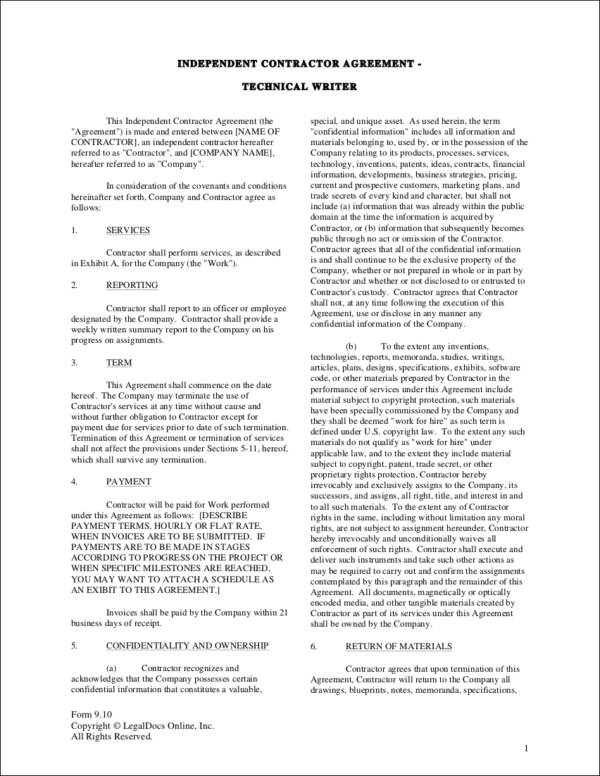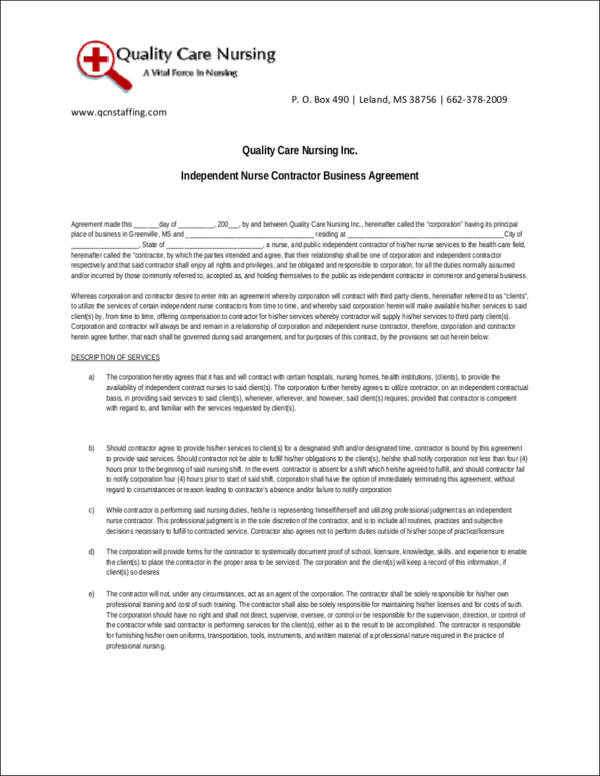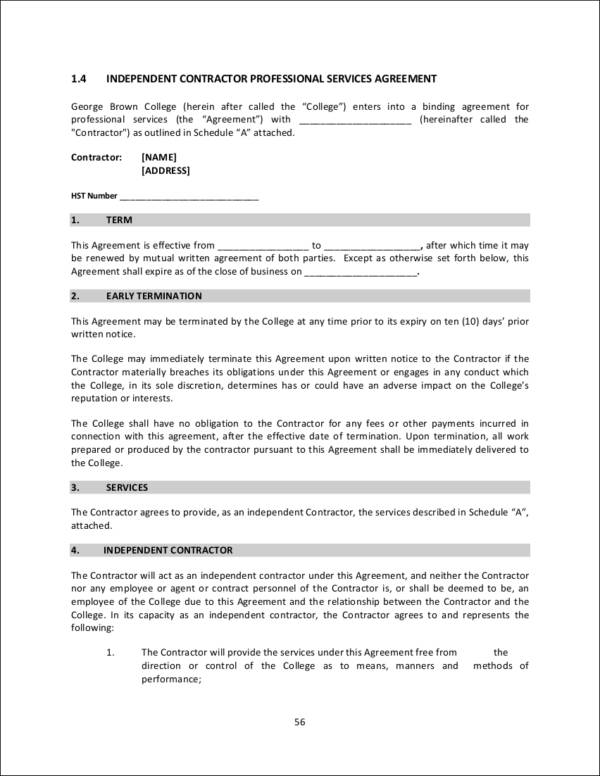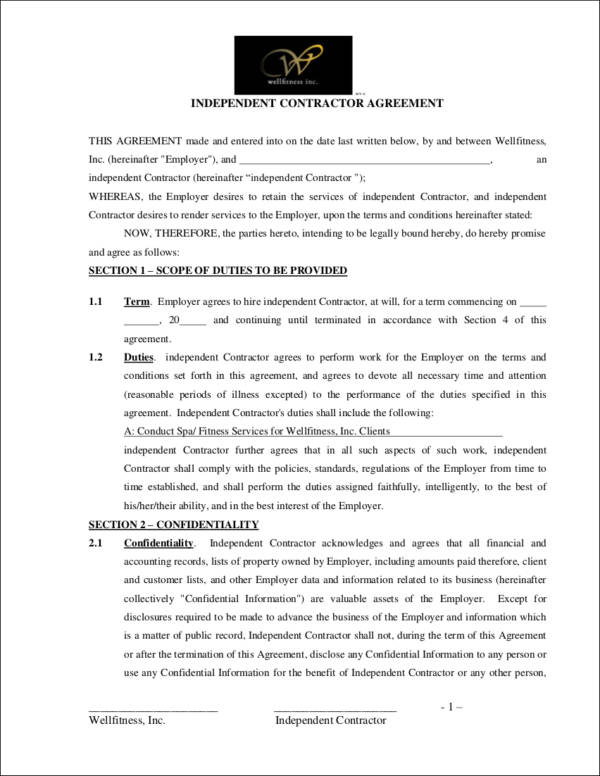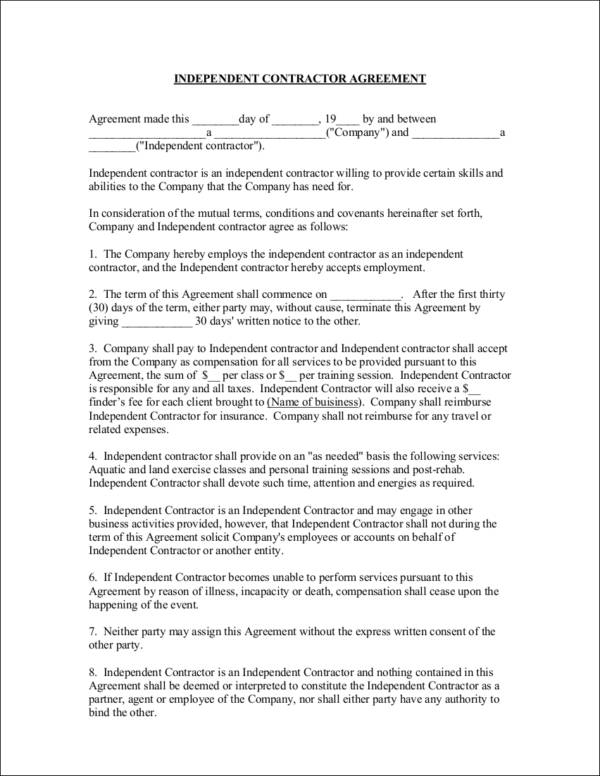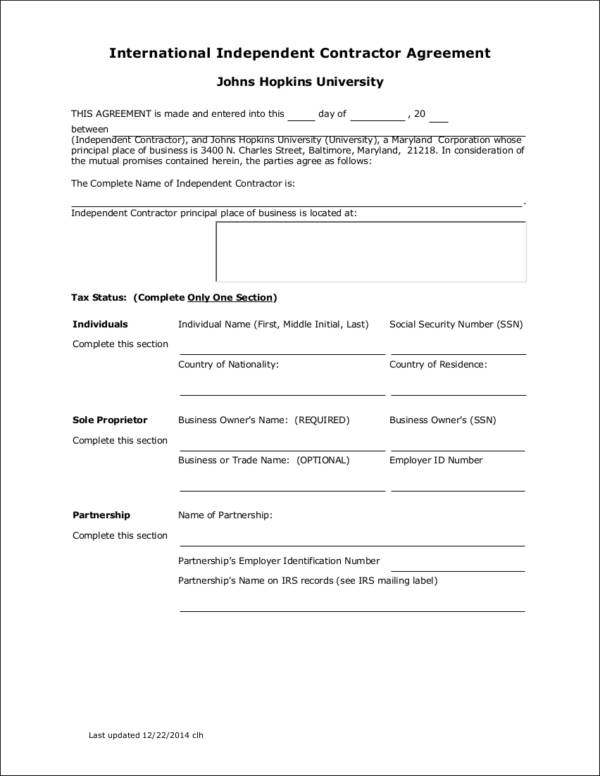Companies and organizations hire employees to work for them on a regular basis. They also hire independent contractors to work on a specific project or task on a contractual basis. It is important to understand whether you are hired by a company as a regular employee or as an independent contractor. This will help you understand your scope of work as well as your limitations.
Both an independent contractor and an employee are paid by the business for the same work, but an independent contractor focuses more on a particular project that typically lasts for a specific period of time. An independent contractor also works with several companies and are not tied to only one company. If you want to know more information about the differences between these two terms, you can read more about it in this article. You can also read about the steps in creating one, some tips, as well as the advantages and disadvantages of being an independent contractor. If you need a template for your independent contractor agreement, we have samples and templates for independent contractor agreements available on this page and on our website.
Independent Trucker Agreement Template
Independent Physician Contractor Agreement Template
Soccer Coach Independent Contractor Agreement
What Is an Independent Contractor?
Independent contractors are skilled individuals that are hired but are not employed by various businesses, organizations, and other entities. Independent contractors are self-employed and are focused on a particular field of work or expertise. Many businesses and companies hire independent contractors to work on a particular project for a specific period of time. It usually takes a few months to finish a project depending on the work that is done. This allows them to increase productivity and be able to finish a particular project on time.
Just like employees, independent contractors get paid for the services that he/she has rendered to the company or business after the work on the project is finished. Since an independent contractor is hired by these companies, a written agreement is important in order for both parties to fully understand their rights and responsibilities. If you need to create an independent contractor agreement, you will find agreement samples and templates for independent contractors in this article. You will also find various agreements and contracts in this site should you need to create other types of agreements.
Advantages and Disadvantages of Independent Contractors
Being an independent contractor can have advantages as well as disadvantages. The advantages and disadvantages of being an independent contractor are as follows:
- One advantage of being an independent contractor is that you have your own business, which means that you are your own boss.
- An independent contractor can work for multiple companies at the same time. This means that they can earn more than being employed at one company.
- Independent contractors focus and specialize on a particular skill that enables them to do their job well.
- An independent contractor can work on short projects for a limited time and they have the freedom to choose which company they can work with.
- By being an independent contractor, they can have a good work and life balance.
- Independent contractors can learn new skills to meet the needs of businesses and companies.
- Independent contractors can set their own prices for the services that they will render to their clients.
- Since independent contractors aren’t employed by any company, one disadvantage is that they will pay for their own taxes.
- Independent contractors will also not be able to get the benefits that a typical employee gets from a company or business.
- Independent contractors are not entitled to get a paid vacation, paid sick leave, and health insurances just like company employees.
- Companies and businesses sometimes classify their employees as independent contractors in order to avoid paying taxes, which can be a disadvantage.
Technical Writer Independent Contractor Agreement Sample
Independent Nurse Contractor Agreement Template
Independent Contractor Professional Services Agreement Template
Fitness Independent Contractor Agreement Template
Fillable Independent Contractor Agreement Template
What Are the Differences between an Employee and an Independent Contractor?
When a particular company hires individuals to work for them, they can choose whether to hire an employee or an independent contractor. Although both an employee and an independent contractor work for a company, both are different from each other. Here are the differences between an employee and an independent contractor:
- An employee is hired by the company to work for them regularly wherein they get a fixed salary. An independent contractor, on the other hand, is hired by the company in order to work on a particular project and gets paid for each project that he/she accomplishes.
- An employee is employed by only one employer while an independent contractor gets to work with various clients at the same time.
- Employees need to do work within the premises of the business or company while an independent contractor can work anywhere he/she prefers whether he works at home, in a coffee shop, etc.
- As the name indicates, an independent contractor works independently without the supervision of the company that he/she is working for. However, an employee works under the control and supervision of the company or business where he/she works.
- Materials, supplies, and other resources are provided by the company to the employees, while an independent contractor provides the materials and resources that he/she will be using for the assigned project.
- A company or business conduct training for their employees in order to perform tasks based on the company’s standards and methods. An independent contractor, on the other hand, works on a project based on the skills that he/she has.
- The company handles the employee’s taxes while an independent contractor pays for his/her own taxes.
How Do You Write an Independent Contractor Agreement?
Have you ever been in an agreement without formally putting it into paper? Without a written document, this can cause a lot of problems for the two parties involved. Before an independent contractor and a company can do business, it is essential to have a written independent contractor agreement. Creating an independent contractor agreement is important to ensure that both parties understand their scopes and limitations regarding the work that needs to be done. To help you create an independent contractor agreement, the steps in creating one are as follows:
- Create an outline or a format of the agreement that you will be creating. To make it easier for you, we have provided various samples and templates in this article that you can download for you to have a well-crafted document.
- Write the title of the document that you will be creating. In this case, since you are creating an independent contractor agreement, specify it in your agreement.
- Write the purpose of the agreement that you are creating and provide an overview of the project that the independent contractor will be working on.
- Now that you have provided an overview of the project, write the scope of work that the independent contractor is expected to do for that project.
- Clearly write the total amount that will be paid by the business to the independent contractor for the project that he/she is working on. Also, include the payment schedules and terms indicating when the independent contractor is expected to receive the payment.
- Lay out in your document the time frame or the timeline of the project by writing in detail when each task will start and end in order to complete the project. This is an important aspect of the agreement since this will help both parties track the progress of the work being done.
- Specify the terms and conditions of the agreement including the methods that both parties will take should there be any disagreements. This will help resolve any problems that may occur during the course of the work.
- Have it signed by the representative of the company and the independent contractor to ensure that both parties agree on the information written in the agreement.
International Independent Contractor Agreement Template
Independent Consultant Agreement Sample
Are Independent Contractors and Freelancers the Same?
Independent contractors and freelancers are terms that people often get confused about. Although both an independent contractor and a freelancer are basically similar to each other, both have a number of differences. So what exactly is the difference between an independent contractor and a freelancer? One main difference between the two is that an independent contractor is usually hired by large companies to do a number of projects for a specific period of time. A freelancer, however, usually works with multiple clients, which do not necessarily involve large companies, unlike an independent contractor. Some examples of freelance work are photographers, writers, graphic artists, designers, etc. If you need to create a freelance contract, we have freelance contract templates, photography contract templates, and service contract templates available for you to download on this site.
Tips for Creating Independent Contractor Agreements
Here are some useful tips that you can refer to when creating independent contractor agreements:
- Clearly define the scope of work that the independent contractor will do in the agreement that you will be creating.
- Always write in detail the payment terms in the agreement to ensure that the independent contractor understands how much he/she will be paid for the work or project that he/she will be working on.
- Remember to specify in the agreement that you are hiring an independent contractor in order to clearly classify the individual.
- Also, include in your independent contractor details about the expenses, specifically who is going to pay for the expenses that will be incurred for the project or work that is going to be done.
- State in the agreement that the independent contractor will not receive benefits from the company for the work.
- Specify the working hours and the duration of the project to ensure that both parties understand when the project will start and end.
- Keep the information in the agreement clear and concise.
- Always remember to proofread your agreement before signing it to ensure that all the necessary information is present and that there are no errors in the document.
- Specify the ownership of the work that will be done by the independent contractor.
- Include in your independent contractor agreement the goals and objectives that are needed to be accomplished.
Related Posts
FREE 10+ Mentoring Agreement Samples In MS Word | Apple Pages | PDF
FREE 10+ Partner Agreement Samples In MS Word | Google Docs | Apple Pages | PDF
FREE 10+ Individual Agreement Samples In MS Word | Google Docs | Apple Pages | PDF
FREE 10+ Strategic Agreement Samples In MS Word | Google Docs | Apple Pages | PDF
FREE 10+ Equity Agreement Samples In MS Word | Google Docs | Apple Pages | PDF
FREE 10+ Producer Agreement Samples in MS Word | Apple Pages | PDF
FREE 10+ Grant Agreement Samples In MS Word | Apple Pages | PDF
FREE 8+ Meeting Agreement Samples in MS Word | Google Docs | Apple Pages | PDF
FREE 10+ Community Agreement Samples In MS Word | Google Docs | PDF
FREE 8+ Real Estate Option Agreement Samples in MS Word | PDF
FREE 10+ Call Option Agreement Samples In MS Word | PDF
FREE 10+ Advertising Agreement Samples In MS Word | Google Docs | Apple Pages | PDF
FREE 10+ Car Agreement Samples In MS Word | Google Docs | Apple Pages | PDF
FREE 10+ Horse Agreement Samples In MS Word | Apple Pages | PDF
FREE 10+ Option Agreement Samples In MS Word | Google Docs | Apple Pages | PDF

